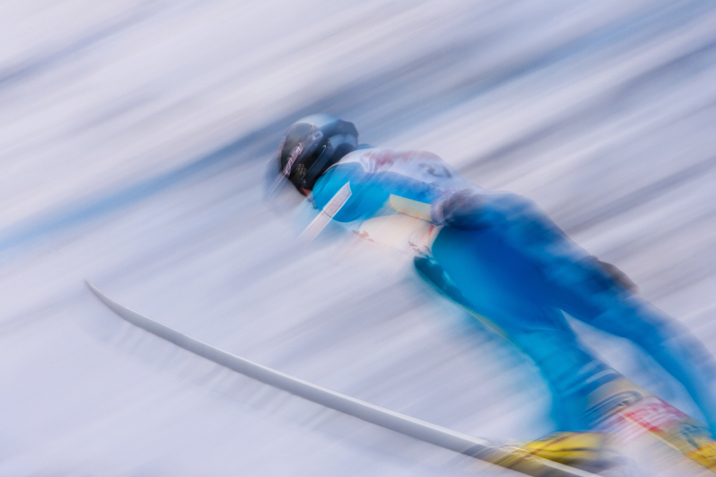The time difference between Zurich and Vancouver is -10 hours. These days, some irregular events have been happening to my regular life. Looking at the TV programs has made our dinnertime vary slightly in the evenings.
Incidentally, when Swiss ski jumper, Simon Amann, who suddenly realized that he was a gifted jumper and was called “Harry Potter in the ski world,” won double gold medals, one Swiss TV station offered a special program of 1-hour interview with Hanspeter Gubelmann, President of Swiss Association for Sport Psychology (SASP) and Simon Amann’s sports psychologist.
Sports psychology is rather young as a study.
The earliest days of the study was seen in the United States in the latter half of the 19th century. Someone started to study among the children when he noticed that the children riding bicycles in a group demonstrated faster pace than those who were riding by themselves.
At the turn of the 20th century, Coleman Grifith started to study on the football and basketball players at the University of Illinois, and became interested in their reactions to the changes in perception, tenseness of muscles, relaxation and so on.
Although the study continued later on, it was from 1960s when the study was acknowledged in the academic field. First of all, The International Society of Sports Psychology was established in Rome, which activities lead the gradual dissemination throughout Europe. Almost at the same time, similar foundations were born in the United States, and the study of sports psychology established a new position in the study of psychology.
When the modern sports era arrived, starting with the welcome of sports psychologists in the international Olympic teams in 1984, any professional sports team these days has their own sports psychologists who are their special psychologists, supporting the athletes mentally. This has become a common sense in the world.
What is the work of a sports psychologist?
It might be a bit misleading, but it is not the idea that sports techniques can be improved by psychology. And, first of all, mind you that it is in the extreme opposite from the spiritual theories such as “guts” or “motivation” that are easy to understand but fossilized.
Life environments, individual characteristics, personal relationships, types of stress, and how to cope with fear and so on. Sports psychology is a new field of psychological study that will analyze the problems thtat individual athelet faces in various aspects, and try to solve such problems in order to bring out further possibilities. It will support athletes to be confident and able to control themselves calmly when participating in big competitions.
As this job requires continuous and extensive relationships with private lives of athletes, real partnership build on the relations of trust is the key.
In this sports psychology field, one big project is being developed in Switzerland, which is a plan to build a big-scale sports center within 3 years in the suburbs of Zurich. It will be a complex facility with 3 ice rinks, soccer stadium, together with doctors and functions of physiotherapy, bio mechanics and sports psychology. Sports Psychology Center will be established here and will play a role of core center in Switzerland in the future.
I had a chance to interview Ms. Cristina Baldssarre Ackermann, Vice Chairman of the bove mentioned Swiss Association for Sport Psychology. The photo was shot by Pirmin Rösli, a hot photographer who is active in various media such as German language newspaper NZZ(Neue Züricher Zeitung)in Europe and many other magazines.
March issue of the magazine “Precious” is now available at bookstores. Its opening gravure features this interview in the “Life is so Precious” section, introducing working women in the 4 large cities in the world.
http://web-precious.com
